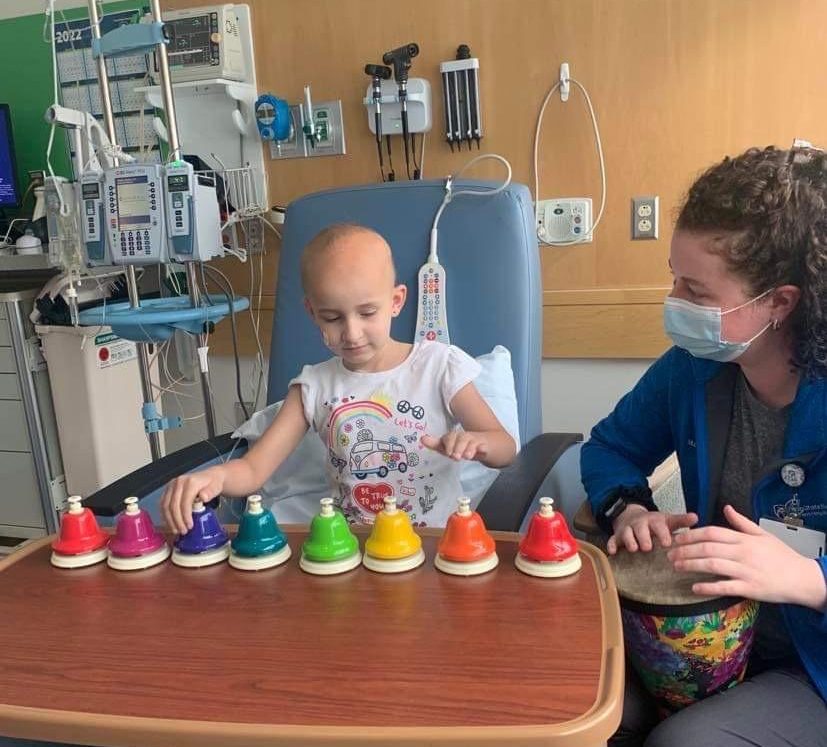
Cancer treatment is stressful for pediatric patients and their families. Treatment can lead to anxiety, depression and other mood symptoms. One-quarter of children undergoing cancer treatment struggle with psychological disorders, including major depressive disorder. Survivors also report increased levels of emotional symptoms and social withdrawal.
Given the myriad of challenges children with cancer experience, it’s crucial that they receive evidence-based therapy interventions that help them cope with physiological and psychological pain. At Four Diamonds at Penn State Health Children’s Hospital, our team of board-certified music therapists and specialty care providers support the physical, emotional, social, cognitive and spiritual needs of pediatric cancer patients and their families.

A board-certified music therapist is a clinically trained health care professional who designs custom, evidence-based music therapy programs. These personalized programs support patients through their cancer journey.
Music therapy has been a crucial intervention for childhood cancer care for decades. Studies indicate that pediatric patients undergoing high-dose chemotherapy saw significantly fewer mood disturbances and improved pain perception after receiving music therapy.
Our pediatric music therapists at Four Diamonds aim to reduce a child’s stress, help them cope with pain and improve their mood during treatment through fun, interactive music experiences.
Music therapy involves listening to, making or interpreting music. Pediatric music therapists help children choose the interventions that they are most comfortable with and excited about. There are several types of music therapy they can choose from, including:
The type of therapy that’s best for a patient usually depends on their age and developmental level. For example, infant music therapy could involve listening to music or encouraging the child to respond to singing or coos. For school-aged children, music therapy might include singing or dancing to music. Teens and young adults might enjoy combining music therapy styles, including singing, dancing, playing instruments or writing, discussing or analyzing lyrics.
Studies show that making, interpreting, listening or dancing to music gives children a creative outlet for self-expression. It also provides several other physiological and psychological benefits for cancer patients during treatment and recovery. These benefits include the following:
At Four Diamonds, our board-certified music therapists are committed to making a difference in the lives of patients and their families through our Music Therapy Program. Our care team comprises 30+ specialty care providers who strive to provide for our pediatric patients’ physical, emotional, mental and spiritual needs. Together, we can help children conquer cancer through superior care, comprehensive support and innovative research.
Learn more about how we help children fight cancer locally and worldwide at Four Diamonds. Otherwise, see how your gifts support children fighting cancer and consider donating today. Contributions from kind donors like you make our work at Four Diamonds possible and help more children conquer cancer. Thank you for your support!